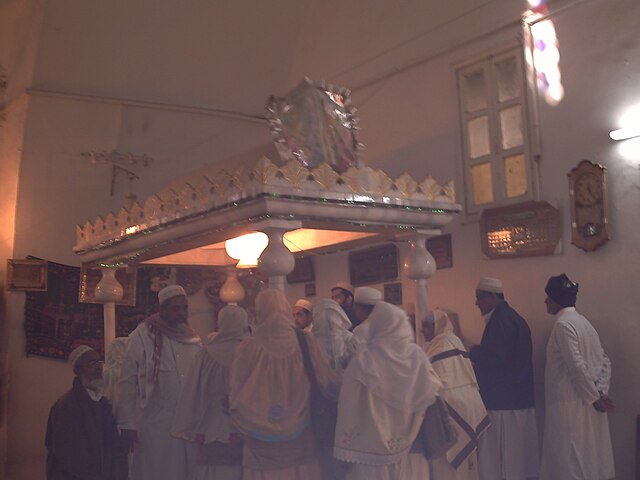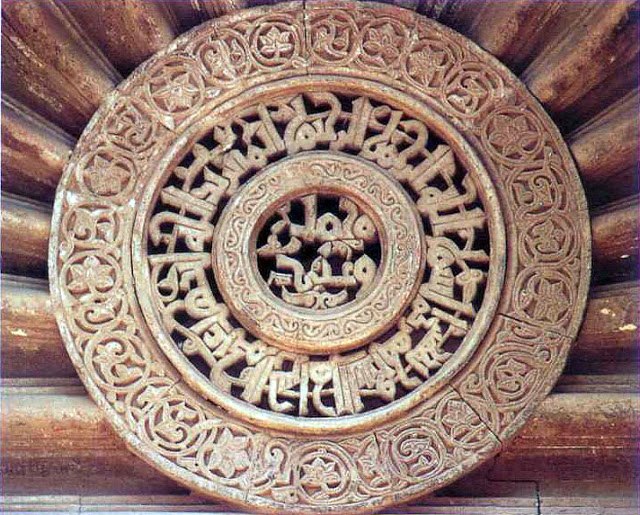Abū Aḥmad ʿAbd Allāh ibn Muḥammad ibn Ismāʿīl, was a descendant of the Islamic prophet Muhammad and the eight of the Isma'ili Imams, succeeding his father, Muhammad ibn Isma'il. Abd Allah traveled throughout Persia and the Middle East. At an unknown date, in the first half of the 3rd/9th century, he found refuge in Syria, where he eventually re-established contact with some of his da'is, and settled in Salamiyah, continuing to pose as a Hashimite merchant. Abd Allah did not reveal his true identity publicly and only a few high ranking Isma'ili hujjats and da'is were aware of his whereabouts. He is known by the epithets al-Wāfī and al-Raḍī. Abd Allah designated his son Ahmad as his successor and died around 828.
House and Mausoleum of Abd Allah, Salamiyah
"Qabr Mubarak" Imam Abd Allah, Salamiyah
Mosque of Imam Abd Allah, Salamiyah, Syria, renovated by the Dawoodi Bohras
Imamate in Ismaili doctrine
The doctrine of the Imamate in Isma'ilism differs from that of the Twelvers because the Isma'ilis had living Imams for centuries after the last Twelver Imam went into concealment. They followed Isma'il ibn Ja'far, elder brother of Musa al-Kadhim, as the rightful Imam after his father, Ja'far al-Sadiq. The Ismailis believe that whether Imam Ismail did or did not die before Imam Ja'far, he had passed on the mantle of the imamate to his son Muhammad ibn Isma'il as the next imam.
The Qur'anic verse 33:33 inscribed in a Fatimid medallion magnifying the purity of Ahl al-Bayt and their Du'at.




